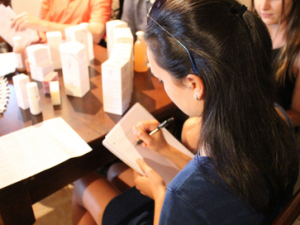Women’s Reproductive Health in Italy: A Short Guide for Study Abroad

Current events in the United States have led students to ask questions like: how does reproductive health work in Italy? This blog will give you a basic overview of women’s healthcare in Italy, highlighting resource access for American study abroad participants.
General Contraception and emergency contraception
 Since 1971, all contraceptive methods have been fully legal in Italy. Over-the-counter contraceptive methods can be easily obtained at any pharmacy and store (such as male and female condoms), while
Since 1971, all contraceptive methods have been fully legal in Italy. Over-the-counter contraceptive methods can be easily obtained at any pharmacy and store (such as male and female condoms), while
hormonal contraception requires a medical prescription, similarly to the US. However, beware of the fact that medical formulas may vary from the US to Europe, and you might not find the exact pill and/or formula you’re used to! It is advisable to inform your doctor or gynecologist about your abroad experience so that you can be prepared in advance and have enough medication to last you the duration of your time abroad.
Emergency contraception is also accessible: pharmacological emergency contraception, generally called the “morning after pill” or “five days after pill”, is a hormonal tablet to be taken as soon as possible after intercourse to avoid the risk of an unwanted pregnancy. There is no necessity to have a medical prescription to obtain the morning-after pill in Italy, and you can ask for it directly at any pharmacy. Some restrictions apply to minors (only concerning the chemical formulation of the given pill). Pharmacists are not allowed to refuse to give you the pill for their personal beliefs: this behavior is fully illegal, and you’re allowed to call the police if this happens.
Reproductive rights – Law 194, May 1978
Italian law n. 194, dated May 22nd, 1978, regulates and guarantees access to abortion for women in Italy. More specifically, Italian law allows the pregnant woman to interrupt a pregnancy if she believes it constitutes a risk for her physical or mental health. This decision is entirely subject to the woman’s will until 90 days after conception. After this period, abortion can be executed if the pregnancy constitutes a serious risk for the woman’s health. In this latter case, the ultimate decision relies on a medical professional. Abortion pills (Ru486) are also available in Italy. The Ru486 pill can be administered up to 63 days from conception (9 completed weeks of gestational age). The procedure can be activated by contacting a trusted G.P., gynecologist, or any Public Center for Sexual Health (Consultorio), and is executed in a hospital or in an adequately equipped and officially authorized public health facility. Hospitalization cannot last more than one day.
Nevertheless, in Italy, a medical professional can still refuse to perform an abortion for personal beliefs. The “obiezione di coscienza” (conscientious objection) is a phenomenon whose diffusion heavily differs depending on the Italian region or area. The Molise Region, for example, is one the areas in which conscientious objection is more common. However, the health professional, even if an objector, cannot invoke conscientious objection if the intervention is essential to save the woman’s life or to avoid serious risks for her health.
That said, it is important to note that most if not all international health insurance policies, at least those coming from the United States, explicitly exclude coverage for abortion, and sometimes pregnancy care, while abroad. So should a student wish to seek such care while in Italy, they’ll need to consider the personal expenses involved and the strong likelihood that they will not be financially reimbursed.
Sources and general indications
 Do you want to consult specific resources and research about Reproductive Health in Italy? Try to check out these materials: Luca Coscioni Association – 194 Mai Dati Investigation; Italian Ministry of Health – Contraception and Reproductive Health.
Do you want to consult specific resources and research about Reproductive Health in Italy? Try to check out these materials: Luca Coscioni Association – 194 Mai Dati Investigation; Italian Ministry of Health – Contraception and Reproductive Health.
Note that all the above material is in Italian. Try the Google automatic translation function to read it fluently!
Are you an Umbra student with questions? We welcome you to speak with our staff. We’re happy to answer your questions privately. We keep a running list of trusted, English-speaking medical professionals you can consult regarding the above.